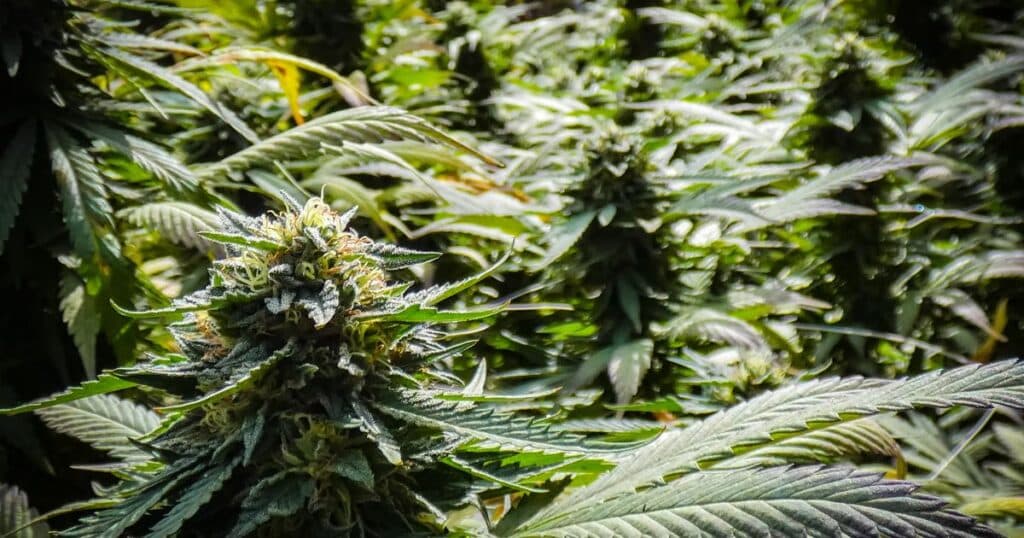Marijuana rescheduling has been gaining traction in recent years, capturing the attention of policymakers, industry stakeholders, and the general public. The recent closure of the public comment period for the Department of Justice’s (DOJ) proposal to move marijuana from a Schedule I to a Schedule III drug under the Controlled Substances Act (CSA) has only intensified the conversation. With nearly 43,000 comments submitted, the majority in favor of rescheduling, this issue is more relevant than ever.

The public comment period is a crucial aspect of the federal regulatory process, allowing stakeholders, the general public, advocates, and proponents to voice their opinions and provide evidence for or against proposed changes. For the DOJ’s marijuana rescheduling proposal, the response was overwhelming, with tens of thousands of submissions from a diverse array of respondents, including governors, members of Congress, medical professionals, and advocacy groups. This public input will play a significant role in shaping the final decision.
Arguments For and Against Marijuana Rescheduling
Many advocates argue that rescheduling marijuana to Schedule III is a step in the right direction. They believe it will help address the state-federal conflict over marijuana laws and reduce criminal justice issues related to cannabis prohibition. Additionally, rescheduling could facilitate more research into the medical benefits of marijuana, potentially leading to new treatments for various conditions.
On the other hand, some critics believe that rescheduling to Schedule III is insufficient. They argue that it does not go far enough in addressing the issues caused by federal prohibition and should be completely removed from the CSA altogether. Cannabis prohibitionists see the proposal as a political move lacking strong scientific backing. There are also concerns about how rescheduling could affect international treaties and regulations.
With the public comment period now closed, the DEA will review the submissions to identify significant legal or factual questions. The agency may decide to hold an administrative hearing to gather additional input before publishing a final rule. This process could take time, and there is no concrete timeline for when a decision will be made.
Legal Challenges and Potential Roadblocks For Marijuana Rescheduling
The DEA has the discretion to hold an administrative hearing before finalizing the rescheduling rule. If this happens, it could delay the process further, potentially pushing it past upcoming elections. An administrative hearing would likely involve significant legal battles, adding complexity and uncertainty to the timeline.
Once a final rule is published, there will be a 30-day period for opponents to file suits against the move. This legal action could delay the effective date of the final rule, potentially for years. The outcome of these legal challenges will play a crucial role in determining the success of the rescheduling effort.
Potential Economic Impacts of Rescheduling
Powered By EmbedPress
Job Creation
One of the most compelling arguments for rescheduling is its potential economic impact. According to an analysis by the Minority Cannabis Business Association (MCBA) and Whitney Economics(document above), rescheduling marijuana could create over 55,000 jobs by 2030. These jobs would span various sectors, including cultivation, retail, and ancillary services, providing a significant boost to the economy.
Tax Relief
Rescheduling could also lead to significant tax relief for cannabis businesses. Currently, marijuana businesses are subject to IRS Code 280E, which prevents them from deducting ordinary business expenses. This results in higher taxable income and federal tax expenses. Rescheduling would eliminate these excess taxes, leading to substantial savings and increased profitability for marijuana businesses.
Broader Economic Activity
The MCBA projects that rescheduling could generate up to $2.7 billion in additional wages and $5.6 billion in new economic activity by 2030. This economic growth would benefit not only the cannabis industry but also the broader economy, creating a ripple effect of financial benefits.
The economic analysis highlights the financial struggles faced by small and minority-owned cannabis businesses. According to a survey of 206 marijuana licensees across 32 states, only 27% of respondents reported profitability, while 41% were breaking even and 36% were operating at a loss. The 280E tax burden disproportionately affects these smaller businesses, draining their limited funds more rapidly than larger companies.
Rescheduling marijuana would provide much-needed tax relief and stimulate job creation, offering a lifeline to struggling small and minority-owned businesses. The MCBA’s analysis suggests that these businesses would benefit significantly from the economic opportunities created by rescheduling, helping to level the playing field in the cannabis industry.
The public comment period for the DOJ’s marijuana rescheduling proposal has ended, but the work is far from over. The DEA will now review the comments, weigh the legal and factual questions, and decide on the next steps. If the rescheduling move is successful, it could create thousands of jobs, provide significant tax relief, and stimulate economic growth. However, legal challenges and administrative hurdles remain.





















